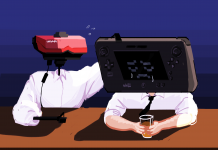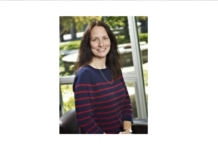The University of Waterloo is awarding retired Canadian astronaut and UW adjunct professor Col. Chris Hadfield with an honorary doctorate from the faculty of applied health sciences June 10. Hadfield joins Rolf-Dieter Heuer, a physicist and director-general of the European Organization for Nuclear Research (CERN), as well as a list of other distinguished academics and researchers, who will be honored as part of the spring convocation.
Hadfield, who is the first Canadian to command the International Space Station (ISS) as well as the first to go on a space walk, has a long history with UW. He grew up in southern Ontario, bought his first house in Kitchener, and in 1982 shortly after acquiring his undergraduate degree in mechanical engineering, attended UW on a research scholarship working on low-pressure fuel pump design which was Hadfield’s first research opportunity.
“It was really thought provoking and illuminating to see the real research side of the university … and to work with trust and autonomy in doing something where the answers weren’t known … I really enjoyed the environment, it was fun and interesting and challenging and the school, it’s world class of course.”
After 26 years out of Canada and five months on the ISS, Hadfield is thrilled to be returning to UW as a professor and to receive the honorary doctorate.
“It’s terrific, it’s both a combination of a personal and professional honour and a personal thrill,” Hadfield said.
Hadfield won’t begin lecturing until September and, contrary to popular belief around campus, doesn’t have a class with his name on it. Rather, he will be appearing as a guest lecturer for courses in the three faculties he is cross-appointed to: the faculty of science, environment, and applied health sciences. He will also be taking on advisory duties and conducting research with faculty, which is already under way. Scheduling is still taking place, so no one knows exactly what classes he will be lecturing in.
Although this is his first gig as a professor, Hadfield has been teaching his whole life. On top of talking at schools from the kindergarten level to post-graduate, he has formal experience instructing junior astronauts in robotics, space walking, cockpit resource management (how to properly get a rocket and crew into orbit), and leadership for first-time space station commanders.
Given the unique perspective he brings to the classroom, Hadfield sees the obvious place for him to start as the intersection of the practical and theoretical. He hopes to use his experience to give students an idea of the potential problems with the application of theory, such as flawed simulations or a lack of practical experience. On the aviation side, having flown over 100 types of planes as well as two different spaceships (the Shuttle and the Soyuz), he plans on giving students both a breadth and depth of knowledge that will give them the best shot at being successful.
Hadfield’s contract is officially up in 2016, but he is viewing his time as an adjunct professor as a long-term opportunity.
“I’ll be an adjunct professor and guest lecturer for a while … but I would really like, over time, to have it grow. It’s one of those things I look at and think boy, there’s an opportunity to teach people for the next 20 or 30 years and I would love to be able to do that.”
It’s hard to imagine what someone with Hadfield’s list of achievements would do after retirement, but the former astronaut plans on moving forward full speed.
“I don’t view any of it as the end of things, each of them [his learning experiences] just gives me a new perspective, a set of skills to do the next things,” Hadfield said.
He is currently working on another book, <em>You Are Here</em>, a concert series with the Windsor Symphony Orchestra, continuing to publicly speak all around the world and of course, getting ready to teach at UW.
Hadfield has always been adamant about having a long-term plan, it’s a big part of what got him to where he his today. Now that his astronaut days are behind him, he plans on turning his attention to some of the world’s biggest issues and contributing in whatever way he can. He has lived his life, especially while at NASA, with a sense of purpose and usefulness and that, he says, is what is underpinning his family’s goals moving forward.
“That’s where we’re headed in everything we’re doing; in teaching, in writing about the experience so people can ultimately see it through their own eyes and through my eyes and make good decisions; but also getting involved in larger projects that are beneficial to Canada … If you look at the combination of long term objectives, of raising the standard of living of people around the world as high as possible but also looking for ways to make it sustainable and then trying to be involved in the leadership of that … there are lots of good organizations that are doing things in that area,” Hadfield said.
Hadfield will address convocation and receive an honorary doctorate of science Tuesday, June 10 at 10 a.m.





























